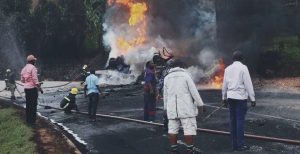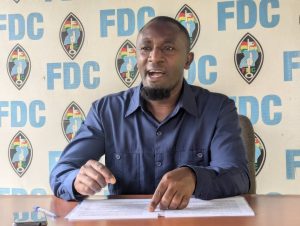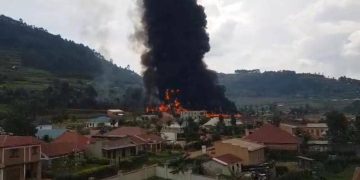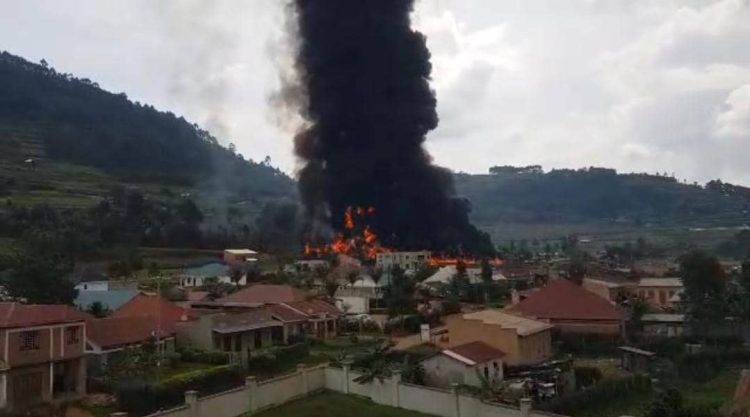By Leonard Kamugisha Akida,
KABALE
The second victim of last week’s Kabale fuel tanker explosion has succumbed to the burns, regional police reported.

Onyango Geoffrey, a 34-year-old Kenyan national from Eldoret, and the driver of the fuel tanker succumbed to injuries sustained in the incident after being evacuated to Kenya for treatment.
The accident occurred on October 26, 2024, around 11:30 a.m. at Kyanamira Trading Center along the Mbarara-Kabale highway when a fuel tanker, a Nissan semi-trailer with registration numbers UAQ 912N/SSD 351Y, which was being driven by Onyango reportedly lost control due to brake failure, overturned, and burst into flames.

One person, Onyango Rogers, 22, a turnboy died in the inferno, but the driver managed to escape from the vehicle covered in flames. He was later airlifted to Kenya for medical attention, but unfortunately, he succumbed to his injuries.
ASP Elly Maate, the Kigezi region police spokesperson, says they are still investigating the accident to determine the precise cause and any potential contributing factors.
In related reports, death toll from a fuel tanker at Kigogwa town council in Nansana municipality, Wakiso district has risen to 26 after more people succumbed to injuries in hospital.
On October 22, days before the Kabale incident, another fuel tanker explosion occured at Kigogwa killing 11 people on the spot, injuring 24 and damaging property. The number has since risen to 26 after some of the victims succumbed to burns.
The incident has sparked concerns about the safety of fuel transportation on Ugandan roads and fire safety in the country, with stakeholders tasking government to decentralize fire brigade units to sub districts (constituency levels) to enhance emergency response and accessibility.

Walid Mulindwa Lubega, FDC’s Deputy Secretary for Publicity in charge of publication and documentation said during their party media briefing yesterday (October 28), localizing fire rescue systems will reduce on the delays to respond to fire outbreaks and improve effectiveness in combating fires.
“We believe bringing fire stations closer to communities can respond swiftly to emergencies, saving lives and property and also localize fire services can navigate familiar terrain, reaching remote areas more efficiently,” Walid said.









































